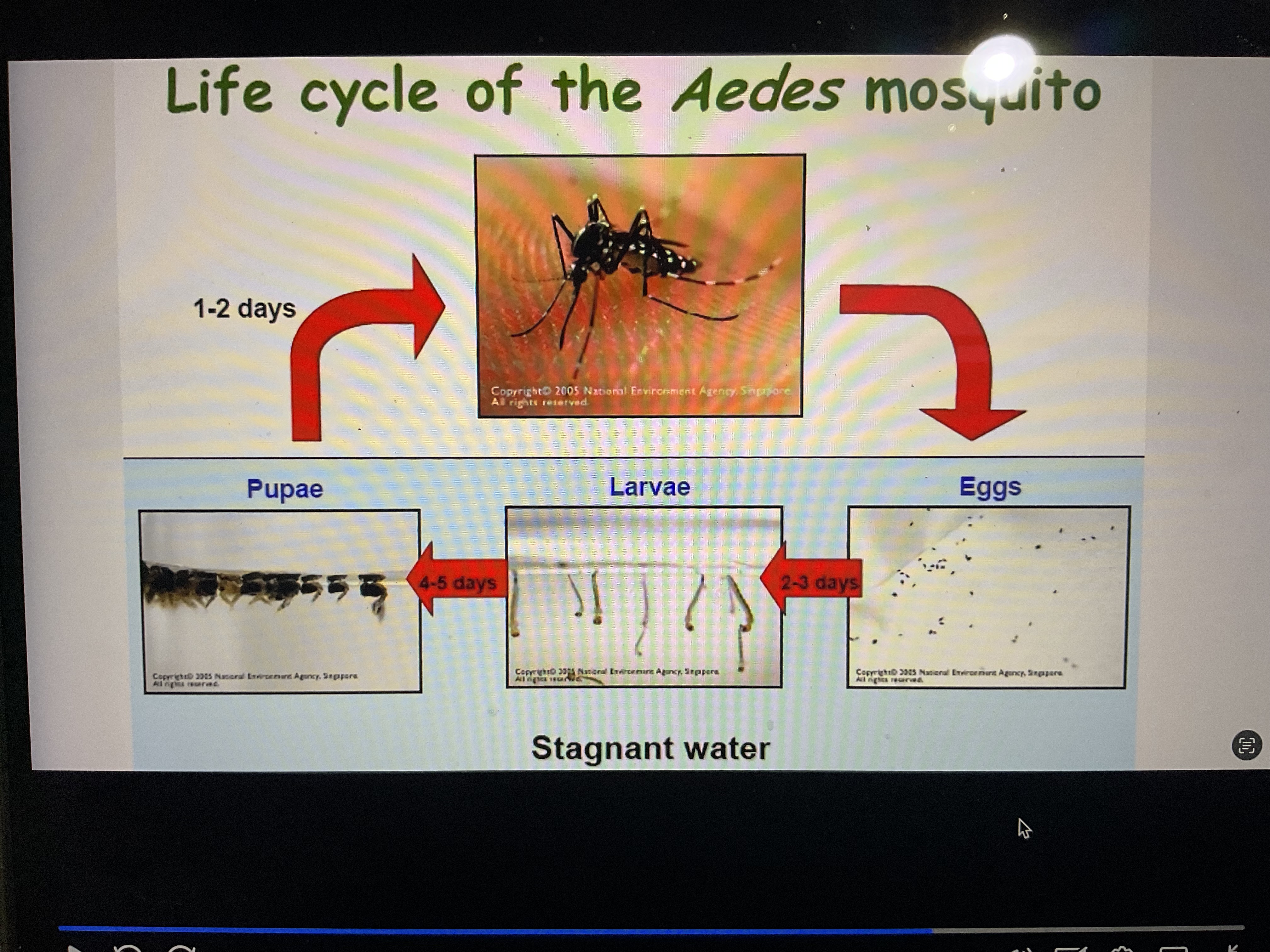Dengue and Zika case studies
1/13
There's no tags or description
Looks like no tags are added yet.
Name | Mastery | Learn | Test | Matching | Spaced |
|---|
No study sessions yet.
14 Terms
Extrinsic Incubation period
Time from when the host is exposed to the disease (Receives virus via mosquito bite) until The host shows symptoms
Intrinsic Incubation period
Time from when the vector acquires the virus (by Biting an infected host) Until the vector is infective (Capable of infecting, a new susceptible host)
ex: How long until Virus sufficiently replicates inside the vector so there is enough virus to infect someone new. We’re not there yet we’ll get there.
Zika & dengue s/s - these two diseases have a lot in common
High fever
Joint pain
Rash
Bloodshot eyes
Eye pain
Headache
Dengue fever is also referred to as
Breakbone fever because people who’ve had it Say that it feels like their bones are breaking from the inside
Both dengue And Zika are ___ illnesses
Viral
Dengue fever host populations
You can have
asymptomatic infection
mild infection
Serious infection
Hemorrhagic infection (dengue Hemorrhagic fever)
Who is at most risk for developing dengue hemorrhagic fever
Those who have been exposed more than once
Population most at risk for Zika
fetuses developing in utero (vertical transmission)
At high risk for microcephaly =Underdevelopment of the brain
Zika for an average adult Will be self limiting = The person will recover
Primary vector for dengue and Zika Illnesses
Aedes aegypti
Aedes aegypti (Breeding grounds)
Standing water
They can breed in very, very small quantities of water (even cap full)
Girls takes 7 to 10ish days

Aedes aegypti (day or night, biting mosquitoes)
DAY BITING
Rarely active at night
Active during sunrise and sunset
Where does the Aedes aegypti Like to be
Indoors and in cool Shaded places
They also like to stay close to home (<1mile From breeding sites)
Who transmits the dengue or Zika virus
Female Aedes aegypti
Because females bite (blood is needed for reproduction) not males
Vertical transmission and mosquitoes
A small proportion of her offspring eggs will carry that virus
But main issue is horizontal transmission